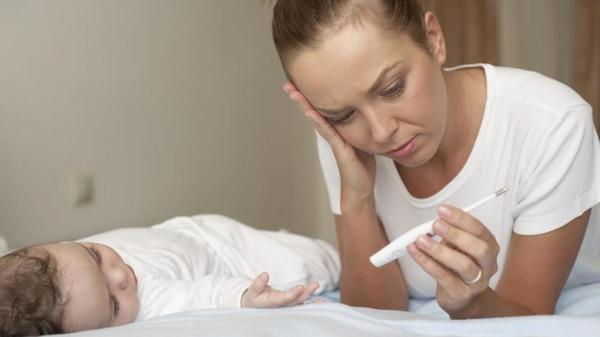When do I have to worry if my child has a fever?
Fever is the most common reason for consultation in children, in emergency services and in primary care (in this case, after cough). It is a very common symptom that often makes parents uneasy. The easiest and safest way to determine fever is to use the thermometer to measure it (rectally for 1 minute in children under 1 year old, axillary for 3 minutes in older children). If the temperature exceeds 38ºC, it is admitted that there is a fever. Children with a fever are often "weird" or irritable, not eating normally, crying, breathing a little faster than normal and, if they are older, they may complain of a headache, muscle pain or a feeling of warmth.
Initially, different physical measures can be used to lower the fever (remove clothing, keep the temperature of the room slightly lower, increase fluid intake to maintain good hydration, take baths with warm water for 20 minutes). Antipyretic drugs are not always necessary. If the most common ones are administered (paracetamol or ibuprofen), it should always be done at the doses recommended by the pediatrician.
The probability that the fever and associated symptoms will disappear spontaneously is very high in most cases. If the child is “okay” (he is attentive and continues to play normally), it is very unlikely that he has a serious illness. Many fevers are due to viral or bacterial infections, but fever can sometimes be due to other causes as well.
Consider consulting a pediatrician as soon as possible in certain circumstances:
a) In children under 3 months, provided there is a fever.

b) If spots appear on the skin, especially if they are dark red, and do not disappear when passing the hand over them (petechiae).
c) If the fever is accompanied by vomiting.
d) If there is persistent headache.
e) If there is drowsiness (the child sleeps continuously).
f) If there is irritability or character changes.
g) If the child has convulsions.
h) If he has respiratory difficulty.
i) If there are any other relevant symptoms: cough, diarrhoea, significant muscle or joint pain.
j) If the fever lasts more than three days.
Regarding enteroviruses as a possible cause of fever, it should be noted that these are very common. Children are often infected because they do not have immunity against them. There is no initial symptom that allows the fever to be identified as due to an infection of this type. Most children infected with enteroviruses will not get sick and will have no or very mild symptoms like the common cold. Some can produce severe respiratory conditions, especially in asthmatic children, and in exceptional cases neurological symptoms may appear, which should also be a reason for urgent consultation.
Always keep calm and use common sense. All parents watch over the health of their children and know how to detect when there is really cause for concern. It is not advisable to consult Dr. Google or blogs of doubtful seriousness. If in doubt, we can call CatSalut Respon (061) or consult the pediatrician. I have done so to write this text: I have consulted the Capse Pediatrics team. They, the doctors and nurses, are the professionals who deserve all our trust and answer our questions. To all of them, thank you very much.
Related
